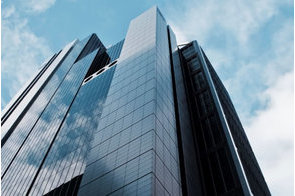AfriDocs presents documentaries shining light on corruption, oppression in Africa

Summary
The films have received numerous awards for shining the light on various civil-society movements across Africa.
AfriDocs, a South Africa-based media company that promotes the best work in African documentary filmmaking, has said it will screen some of the world’s most powerful and award-winning documentaries in October. AfriDocs is an initiative of Steps, a South African documentary production and distribution company, in partnership with the Bertha Foundation.
According to a statement released on Friday, AfriDocs said the documentary films have received numerous international awards for shining the light on various civil-society movements across Africa that have taken on corruption and oppression both in government and in the public sector.
One of the films to be screened next month is The Supreme Price, a 2014 documentary by award-winning filmmaker, Joanna Lipper, on the annulment of the 1993 election of the late M.K.O. Abiola in Nigeria. The film provides an unprecedented look into Nigeria from the perspective of women, exposing a deep history of political corruption. The film won Best Documentary at the 2014 Africa International Film Festival (AFRIFF). It has also been nominated for an African Movie Academy Award – Best Documentary, and was nominated for The Grierson Awards – Best Historical Documentary.
AfriDocs will also feature The Revolution Won’t Be Televised, a film by Senegalese filmmaker, Rama Thiaw, that tells the story of Thiat and Kilifeu, Senegalese activists and underground hip-hop singers, who led the one-year revolution against former President Abdoulaye Wade, who ran for a controversial third-term in office and subsequently left office in 2012 following protests. The Revolution Won’t Be Televised is a 2016 film about a country in the grip of change, in which two-thirds of the population are under 25 and long for new beginnings. The film was awarded the FIPRESCI Prize at this year’s Berlinale 2016.
Other internationally-acclaimed films to be screened by AfriDocs throughout the month include Blood in the Mobile, a film that addresses the issue of conflict minerals by examining illegal cassiterite mining in the North-Kivu province in eastern DR Congo. The 2010 film by Frank Piasecki Poulsen received the Cinema for Peace Award, in Berlin in 2011.
Another documentary to be aired is Captaine Thomas Sankara, a 2014 film by Christophe Cupelin. It is portrait composed of archives of Thomas Sankara, President of Burkina Faso from 4 August, 1983 until his assassination on 15 October, 1987. The film is a tribute to his extraordinary statesmanship. He was considered to have significantly influenced the history of his country and of the African continent with his reforms and anti-imperialistic politics. The film won Audience Award, at the Black Movie Film Festival 2013.
Others are Shadow World (2016) by Johan Grimonprez. The film, which is on global arms trade, won The Best Documentary Feature Film at the Edinburgh International Film Festival 2016. Chips and Liver Girls (2010) by Boris Bertram and Caroline Kamya is a film on sex, sugar daddies and modern love in Kampala, Uganda, showcasing a phenomenon called ‘transactional sex’, which is said to be common in East Africa. It won an award at the One World Romania International Human Rights Documentary Festival, 2012.
AfriDocs is screened every Thursday night on [ED] (DStv channel 190 and GOtv channel 65).
Related
-
Is the UN Pact for the Future the real deal or another empty promise?
The Pact for the Future may not be a panacea for the world's problems, but it reflects a collective commitment among ...
-
AfDB recommends targeted fiscal, monetary policies to fight Covid-19
In the worse-case scenario, Nigeria's GDP is forecast to contract by 7.2 per cent in 2020 and grow by 0.1 per cent in 2021.
-
Leading global companies improve sustainability reporting – study
The report shows progress by many of the leading global companies in integrating the SDGs into their business.








